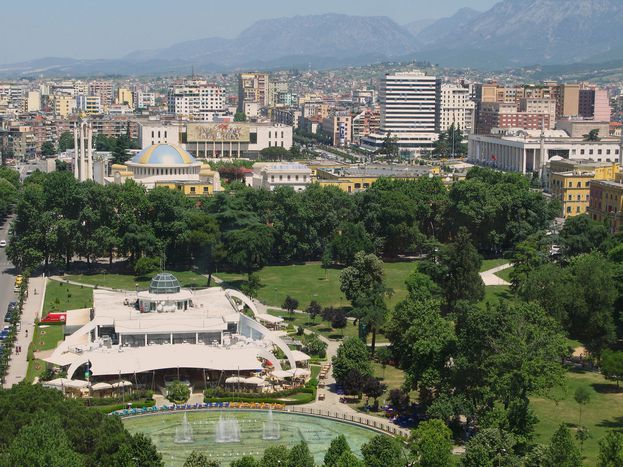
What does Europe mean to Albanian people?
Published on
With Europe Day having just passed, it's interesting to understand how the European Union is perceived not just within its member states but also beyond its borders.
Despite huge criticisms of the EU from elsewhere, concerning issues with its democratic deficit and immigration, young Albanians generally see the European project as a positive:
Every year, come May the 9th, peace and unity in Europe is celebrated. It dates back in 1950, following anniversary of the historical the ‘Schuman Declaration’. On May 9th 1950, in a speech inspired by Jean Monnet – the French Foreign Minister, Robert Schuman, proposed the pooling of coal and steel resources of France and the Federal Republic of Germany (FRG) in an organisation that would later on, become the main source for membership to other European countries.
This almost revolutionary declaration has generated a shock wave that would launch the process of unification. In the last decades, Europe has undergone significant changes that have brought the utmost unification of people, languages and culture. Since its start, the declaration aimed to bring about a profound change in mentalities that would help win over the people of Europe. The 2013 enlargement of the European Union, brought Croatia on board as the 28th Member State.
This May, Europe celebrates 65 years since Schuman’s Declaration. Nowadays, profound questions about what future lies ahead for Europe, are intriguing many scholars, politicians and economists around the globe. Nevertheless, there is a general wide-spread perception that countries from the South East of Europe, are very much in favour of joining the European Union. This is moreover strengthened due to a strong prevalence of associating with the ‘European identity’ in general.
The Albanian case
Albania, a small country located in the South East of Europe, has undergone significant changes in the last two decades. The collapse of the communist system in the beginning of the 1990s, has exposed the country to multiple opportunities for economic, social and political development. Last June, Albania was granted the official EU membership candidate status (adding to its membership in the Council of Europe, NATO, OSCE, IMF, WTO and so on).
Indeed, one of the most important changes which has been accentuated throughout the last few years, is a ‘new political culture’ prevailing throughout the country. Whoever has had the chance to get in touch with Albanians in Tirana (the capital) or elsewhere can notice how much things have changed, in a good way. Nowadays, people are more open-minded, in touch with the reality in the country and also elsewhere, well-educated and outspoken, often possessing at least two foreign languages.
We asked some young Albanians, students and professionals alike, what Europe means to them. Here are their views:
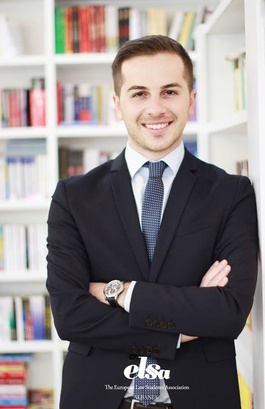 Armando Bode, a Master's Student of Law at the University of Tirana (Albania) and President of ELSA, the European Law Students’ Association said: "Europe to me first and foremost means meritocracy. I see Europe as the world in which your skills will be appreciated more than the power deriving from you family and the 'connections'. Moreover, Europe to me means respect for human rights from every stakeholder and state responsibility towards its citizens."
Armando Bode, a Master's Student of Law at the University of Tirana (Albania) and President of ELSA, the European Law Students’ Association said: "Europe to me first and foremost means meritocracy. I see Europe as the world in which your skills will be appreciated more than the power deriving from you family and the 'connections'. Moreover, Europe to me means respect for human rights from every stakeholder and state responsibility towards its citizens."
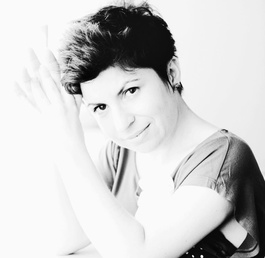 Rudina Hoxha, a freelance journalist based in Tirana said: "My personal perception is that Europe is like a ‘big gate’ that thrills you to think about how to open it. This stimulates a continuous challenge about who is going to get there first. The ones who work the most, get to open this door easily. This marks the beginning of many opportunities for personal and professional development."
Rudina Hoxha, a freelance journalist based in Tirana said: "My personal perception is that Europe is like a ‘big gate’ that thrills you to think about how to open it. This stimulates a continuous challenge about who is going to get there first. The ones who work the most, get to open this door easily. This marks the beginning of many opportunities for personal and professional development."
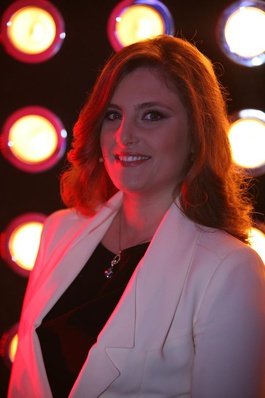 Marjola Xheblati, Communications Officer at the University of Tirana and also a PhD candidate in Law said: "Since 2010, when Albania joined the Schengen Area of Free Movement, I started to experience Europe closer than ever. Due to my work, I have had the chance to visit many European universities, and to get a taste of culture, languages and people. To me Europe is so diverse it always fascinates me. I hope that in the future, Albania joins the European Union, to have more opportunities for everyone. I am optimistic that when my son will grow up, he will experience more from travelling and studying in Europe."
Marjola Xheblati, Communications Officer at the University of Tirana and also a PhD candidate in Law said: "Since 2010, when Albania joined the Schengen Area of Free Movement, I started to experience Europe closer than ever. Due to my work, I have had the chance to visit many European universities, and to get a taste of culture, languages and people. To me Europe is so diverse it always fascinates me. I hope that in the future, Albania joins the European Union, to have more opportunities for everyone. I am optimistic that when my son will grow up, he will experience more from travelling and studying in Europe."
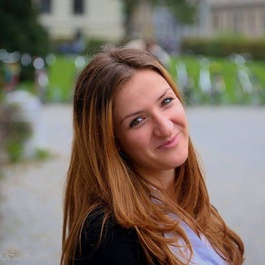 Matilda Karçanaj, a Master's Student in South East European Studies, at the University of Graz in Austria, said: "All in all, my life would have been different, if I would not have gone in my first seminar in Serbia financed by European Commission. Today, I would not be studying in Austria without my scholarship. My dream came true only due to the opportunities that the EU provides for all of us, non- EU and EU citizens, and my commitment to my studies. Therefore, without commitment from the Western Balkans, the EU will feel a big challenge to enlarge."
Matilda Karçanaj, a Master's Student in South East European Studies, at the University of Graz in Austria, said: "All in all, my life would have been different, if I would not have gone in my first seminar in Serbia financed by European Commission. Today, I would not be studying in Austria without my scholarship. My dream came true only due to the opportunities that the EU provides for all of us, non- EU and EU citizens, and my commitment to my studies. Therefore, without commitment from the Western Balkans, the EU will feel a big challenge to enlarge."
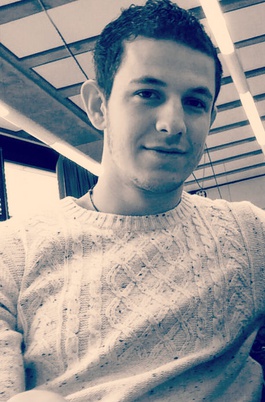 Aurel Ndoni, an undergraduate at the Technischen Universität Berlin in Germany, studying Architecture: "For me Europe is a great place. It’s already been two years that I've lived in Berlin, where I am pursuing my dream of becoming an architect. In the meantime I have travelled in many European cities and countries, which have strengthened my ‘European feelings and identity’. At home I speak Albanian, in Berlin I speak German, and I communicate freely in English and Italian whenever I find myself surrounded with international young people. Isn’t Europe amazing?"
Aurel Ndoni, an undergraduate at the Technischen Universität Berlin in Germany, studying Architecture: "For me Europe is a great place. It’s already been two years that I've lived in Berlin, where I am pursuing my dream of becoming an architect. In the meantime I have travelled in many European cities and countries, which have strengthened my ‘European feelings and identity’. At home I speak Albanian, in Berlin I speak German, and I communicate freely in English and Italian whenever I find myself surrounded with international young people. Isn’t Europe amazing?"
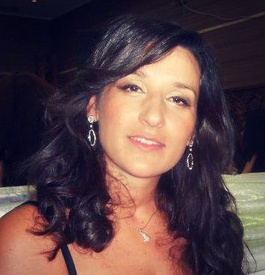 Esmeralda Spaho, a finance expert residing in Tirana: "For me Europe is not just about traveling. Although you experience most of it through travelling and getting out of your comfort zone. I feel I belong to Europe because I like the idea of being so different and so united at the same time. The continent is embedded with multiple cultures, languages, history and traditions. As a young professional, I feel could contribute to making Europe a better place, whilst Europe also has an impact on me for making me feel so European."
Esmeralda Spaho, a finance expert residing in Tirana: "For me Europe is not just about traveling. Although you experience most of it through travelling and getting out of your comfort zone. I feel I belong to Europe because I like the idea of being so different and so united at the same time. The continent is embedded with multiple cultures, languages, history and traditions. As a young professional, I feel could contribute to making Europe a better place, whilst Europe also has an impact on me for making me feel so European."



